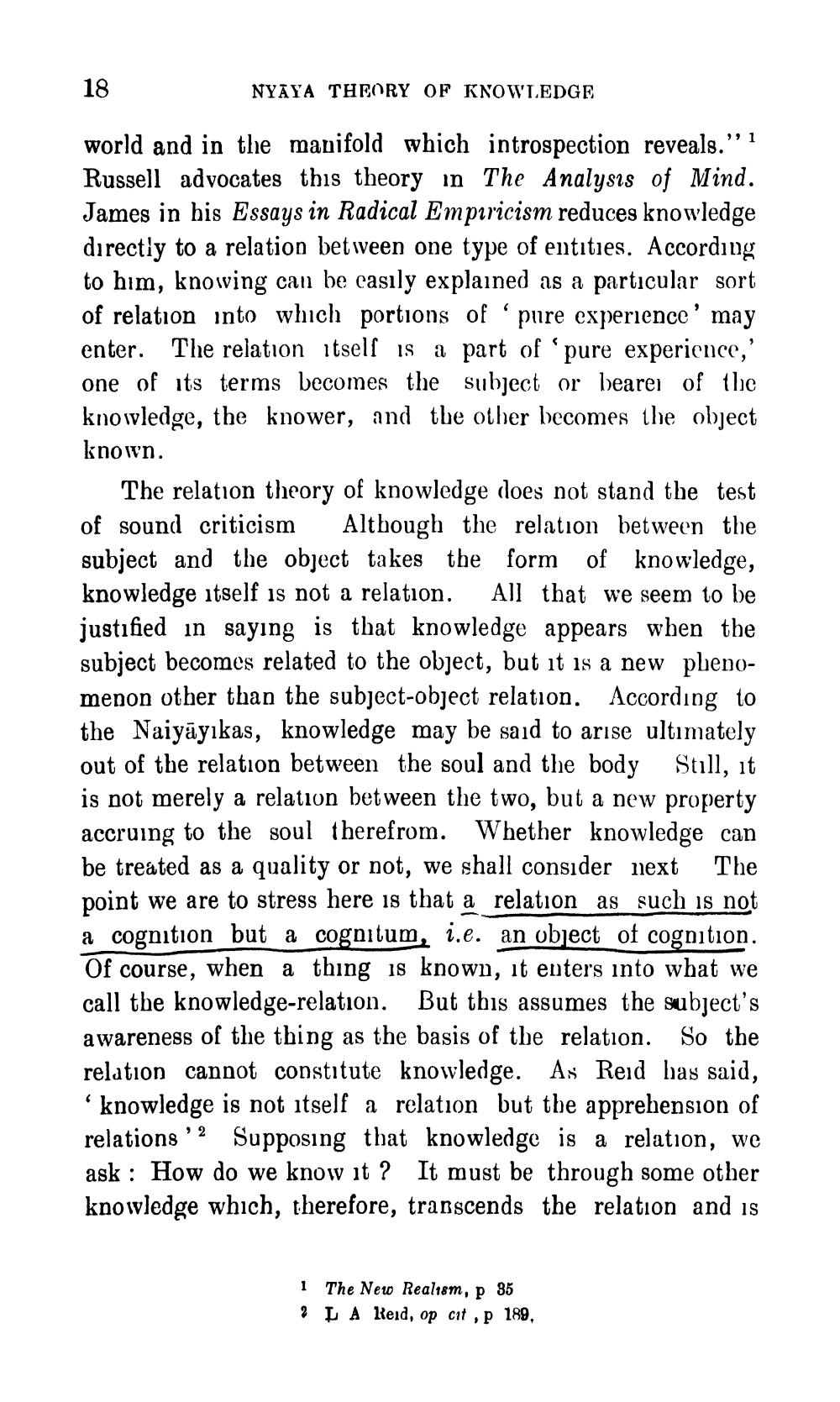________________
18
NYAYA THEORY OF KNOWLEDGE
world and in the manifold which introspection reveals.” 1 Russell advocates this theory in The Analysis of Mind. James in his Essays in Radical Empiricism reduces knowledge directly to a relation between one type of entities. According to him, knowing can be easily explained as a particular sort of relation into which portions of pure experience' may enter. The relation itself is a part of 'pure experience,' one of its terms becomes the subject or bearer of the knowledge, the knower, and the other becomes the object known
The relation theory of knowledge does not stand the test of sound criticism Although the relation between the subject and the object takes the form of knowledge, knowledge itself is not a relation. All that we seem to be justified in saying is that knowledge appears when the subject becomes related to the object, but it is a new phenomenon other than the subject-object relation. According to the Naiyāyikas, knowledge may be said to arise ultimately out of the relation between the soul and the body Still, it is not merely a relation between the two, but a new property accruing to the soul therefrom. Whether knowledge can be treated as a quality or not, we shall consider next The point we are to stress here is that a relation as such is not a cognition but a cognitum, i.e. an object of cognition. Of course, when a thing is known, it enters into what we call the knowledge-relation. But this assumes the subject's awareness of the thing as the basis of the relation. So the relation cannot constitute knowledge. As Reid has said,
knowledge is not itself a relation but the apprehension of relations 'Supposing that knowledge is a relation, we ask : How do we know it? It must be through some other knowledge which, therefore, transcends the relation and is
1 The New Realism, p 85 % LA Reid, op cit, p 189,




